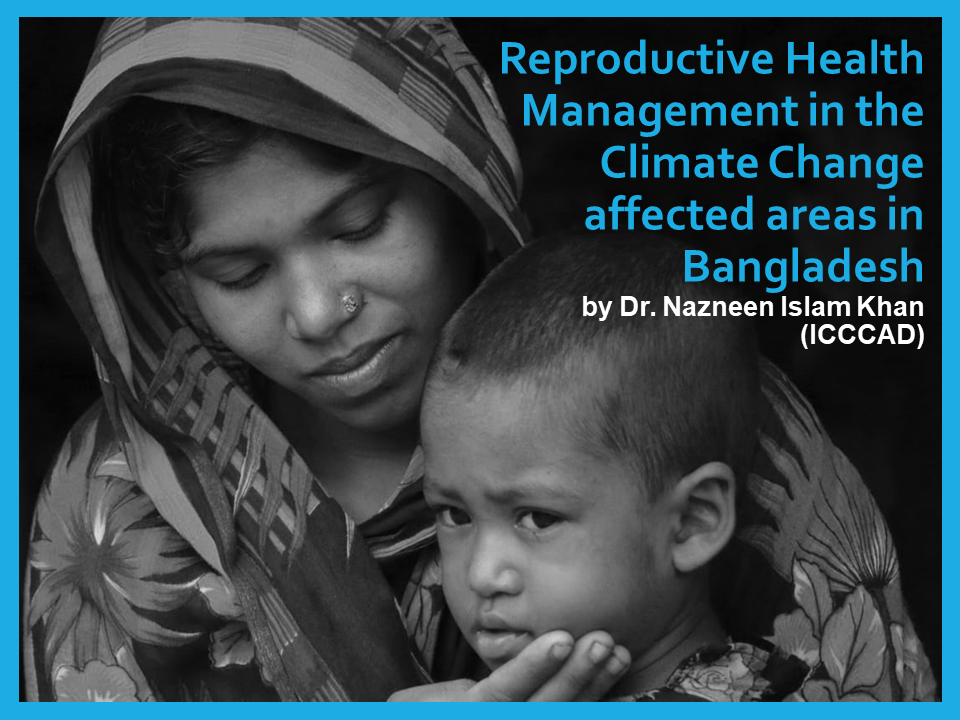Reproductive Health Management in the Climate Change affected areas in Bangladesh
Given its geographic location, Bangladesh is prone to cyclones, floods, and droughts, which are all recurring problems for the nation. Bangladesh is one of the top five countries in Asia and the Pacific in terms of risk of disaster, according to the UN’s 2021 Regional Focus Model (RFM) on disaster vulnerability. All these effects of climate change substantially increase the vulnerability of women and children in Bangladesh in terms of sexual and reproductive health and rights (SRHR) issues, in addition to having an impact on the country’s economic and social elements.
Menstrual hygiene maintenance is difficult in Bangladesh, as many women avoid talking about their periods altogether due to the stigma and taboo surrounding them. Although there is a long history of menstrual myths in Bangladesh, tiny steps are being taken to help shatter the taboo and raise awareness of the importance of hygiene for girls and women. The majority of girls and women in Bangladesh’s coastal areas, which are also recognized as climate change hotspots, still don’t follow good menstrual hygiene during their periods. Such unsanitary behaviors can have a major negative impact on health and possibly result in death. Still, it is surprising that so few individuals in a region that is prone to natural disasters consider offering women sanitary napkins during their periods.
In particular, the government of Bangladesh has encouraged small and medium-sized businesses to promote hygienic products that are easily available and reasonably priced for women and girls in remote and difficult-to-reach areas of the nation, particularly in area that is prone to disasters. In order for women and girls to benefit, it also asked all sanitary napkin makers to submit an application right now for this tax break on prices. The national health plan must include adaptation and resilience strategies, and knowledge and research contributions to the policymakers are essential to ensuring healthier communities and protecting everyone’s wellbeing, especially that of women and girls.
Author:
Dr. Nazneen Islam Khan
Researcher, International Centre for Climate Change and Development (ICCCAD)
To read the full article, please visit The Dhaka Tribune


